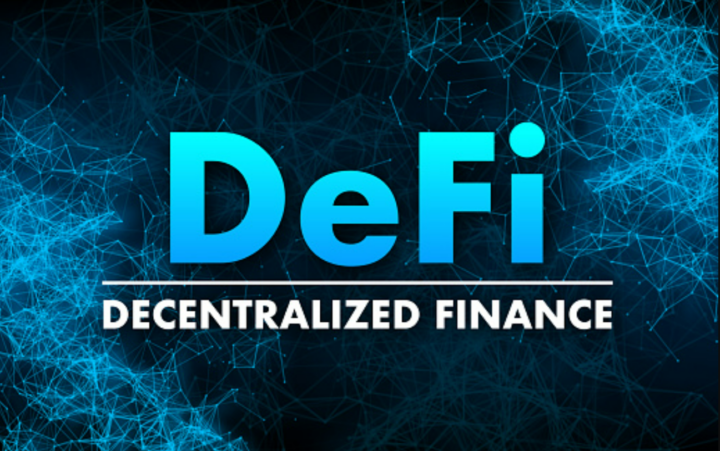It’s no secret that cryptocurrency is on the rise. With Bitcoin hitting an all-time high in 2022 and more people than ever looking to invest in digital assets, it’s clear that this trend is here to stay. But what does the future hold for cryptocurrency? In this blog post, we’ll look at some of the top crypto trends for 2022.
From new regulations to increasing adoption rates, there’s a lot to keep an eye on in cryptocurrency. So whether you’re a seasoned investor or just getting started, read on for everything you need to know about the top crypto trends of 2022!
The rise of non-fungible tokens (NFTs)
 The rise of non-fungible tokens (NFTs) in the art and collectible marketplace has been remarkable. NFTs are unique digital assets representing various goods, including artwork, music, and sports memorabilia. Thanks to their use of blockchain technology, these tokens are immutable, verifiable, and protected from fraud and counterfeiting.
The rise of non-fungible tokens (NFTs) in the art and collectible marketplace has been remarkable. NFTs are unique digital assets representing various goods, including artwork, music, and sports memorabilia. Thanks to their use of blockchain technology, these tokens are immutable, verifiable, and protected from fraud and counterfeiting.
As a result, they provide unprecedented confidence to buyers and can increase exposure for artists and creators. In addition to these advantages, NFTs have offered new opportunities for traditional brands to move into the digital space. By creating virtual experiences around physical products or monetizing digital experiences in previously unobtainable ways, these brands can now engage with an entirely new consumer base.
While it is still early days for NFTs, their emergence signals a major shift in how we purchase art in the future. There is no denying that NFTs offer tremendous potential for commerce in the years ahead.
Decentralized finance (Defi) on the rise

Decentralized finance (Defi) is gaining traction as a viable form of financial technology. Defi harnesses crypto protocols to provide people with the same financial services traditional banking systems offer without relying on the same centralized infrastructure or counterparties.
In addition to decentralized exchanges and crypto-backed loans, Defi also can offer crypto loans without collateral. This makes it easier for individuals to access capital and expand their investments with much lower risks than other loan services.
Moreover, leveraging crypto tokens instead of fiat currencies introduces a new level of accuracy to how users interact with their financial activities since crypto assets can be very precise in terms of cost and amount. As a result, more individuals are adopting this revolutionary decentralized system and utilizing its many advantages. Providing consumers with transparency, security, low transaction costs, and faster settlement times, Defi is poised to become an integral component of the future economy.
The continued rise of Bitcoin and other cryptocurrencies
In the last several years, cryptocurrencies such as Bitcoin have increased in popularity and value. What began as an obscure technology has now become a globally recognized form of investment.
The blockchain technology that underpins these digital assets is the driving force behind this. This ledger system stores transaction data securely and transparently, ensuring that payments can take place quickly and without intermediaries.
As a result, cryptocurrencies have become attractive to investors looking for a hedge against inflation and other risks associated with traditional markets.
Moreover, its decentralized structure allows users to remain anonymous and removes potential barriers presented by geography or jurisdiction. Despite recent regulatory restrictions imposed by some large countries, cryptocurrency demand remains strong as individuals seek financial freedom away from government interference and central banking systems worldwide.
Undoubtedly, the continued rise of cryptocurrencies will only accelerate as more people overlook their initial skepticism and opt for these innovative investments instead.
Increased adoption of blockchain technology

The use of blockchain technology is on the rise, with increasing potential to revolutionize multiple aspects of our lives. The decentralized nature of blockchain enables digital trust, providing a way for users to send and receive information without fear of exploitation—an essential function in today’s digitally connected world.
Blockchain can be used to store and transmit data or value securely and efficiently, which is attractive to sectors such as banking, healthcare, logistics, and energy management. With the help of powerful computing power brought on by advanced artificial intelligence (AI) systems, it is becoming easier for companies to collect data from multiple sources in real-time and gain an edge over their competitors.
As such, we are seeing an exponential increase in adoptions within these industries due to efficient transaction speeds, improved security protocols, and cost-reduction opportunities that come with blockchain-powered solutions. Businesses must adapt quickly if they want to stay competitive in these rapidly evolving times; harnessing the many advantages blockchain presents could benefit those who do so.
Shortly we may see more everyday citizens benefitting from this technology as it continues its transition into mainstream use. It is an exciting time ahead as the potential application of this technology appears limitless!
Regulation of the crypto industry
In recent years, the crypto industry has seen a rapid rise in popularity as an investment tool and a means of buying goods. This has increased demand for measures to regulate the industry to protect consumers from scam projects and vulnerable investments.
Governments have responded with varying approaches, such as legislation or compliance rules governing asset storage, investor protection, and the trading of digital tokens. In some jurisdictions, companies may be part of self-regulatory organizations (SRO), which guide compliance standards and protocols. A certification body can also help crypto companies to confirm their compliance with regulations by providing independent audits and assessments.
Despite this increased focus on regulation, further research is still needed to ensure consumer safety while creating a level playing field in which reputable players can compete globally. By addressing these pressing issues, governments can create an environment that prevents fraudulent practices while encouraging innovation and legitimate business models within the crypto industry.
Overall, regulating the crypto industry is essential for consumer protection but must be produced with care not to stifle innovation or restrict legitimate trading practices from developing fully. With proper oversight and balancing of innovation versus legislation, crypto assets could become even more mainstream than they already are today.
Conclusion
The past year has been a big one for the crypto industry, with several notable developments. These include the rise of non-fungible tokens (NFTs), the continued growth of decentralized finance (Defi), and the increased adoption of blockchain technology. We also saw the continued rise of Bitcoin and other cryptocurrencies and more regulatory scrutiny of the industry. 2022 was a big year for crypto, and 2023 is shaping even bigger.



















Your way of telling story is too much good your story is too good